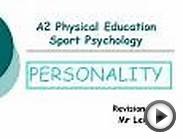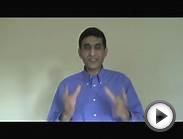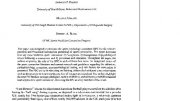 Sports psychologist motivates football players in the locker room. Photo Credit Mike Powell/DigitalVision/Getty Images
Sports psychologist motivates football players in the locker room. Photo Credit Mike Powell/DigitalVision/Getty Images
Success or failure on the field often depends on mental factors as much as physical ones. Sport psychologists recognize the dramatic impact of the athlete's mindset, and focus on preparing the mind to overcome obstacles on the field while boosting confidence for optimal performance. By definition, sport psychology is the study of mental factors as they relate to athletics. Sport psychology is commonly referred to as "sport and exercise psychology, " as it is used for team sports as well as individual fitness endeavors.
Sport psychology assumes that goal-setting is the key to motivation. In order to motivate yourself, create clear, sharp long-term goals and break these down into smaller medium-term goals. Break down these medium-term goals into short-term goals so that you have a clear connection between what you do every day and your long-term goals, advises Mind Tools: Personal Goal Setting.
Imagery is the process of improving your sporting performance by practicing purely in your mind. To some extent, imagery is superior to physical training because you can train anywhere, any time. Evidence suggests that the use of imagery activates some of the same neural pathways that are activated by actual physical performance. Use your mind to put your actions in slow motion - swing at an imaginary golf ball, for example. This allows you to break down complex movements and examine each component. Imagery also allows you to experience imaginary victory which, if vividly imagined, can enhance self-confidence, according to Coaching Science Abstracts.
Simulation is the practice of training in an environment that is specifically designed to emulate actual conditions during competition; for example, practicing in the very basketball arena where you later compete, possibly even bringing in spectators. This is why university and professional teams sometimes open their practices to the public.
Focus refers to undivided attention on the execution of a particular skill to the extent that you "shut out" the outside world. Train your focus by using imagery to picture performing the simplest version of a skill that you want to focus on -hitting a tennis ball across the net in response to an easy serve, for example. Practice doing so without analysis or self-consciousness, and gradually focus on more complex skills. Focus becomes more difficult as you get better at a sport, because the demands made upon you become more complex.
Flow is a state of effortless concentration that results from a period of intense focus. It is the goal of all sport psychology because athletes report being in a state of flow during their best performances. Flow begins at the point that focus stops becoming difficult and starts becoming easy. Entering a state of flow requires justified self-confidence, challenging activity, unforced concentration, relaxation, alertness and positive attitude. The enemies of flow are the desire to win, the desire to impress others, excessive effort to achieve a state of flow, and lack of initiative.
Sport and exercise psychology is a growing career field, and practitioners observe athletes as they develop on a physical and mental level. Sport psychologists may act as coaches or as researchers, developing new methods to enhance performance using various psychological techniques.
Source: www.livestrong.com
You might also like:






|
Mental Toughness for Peak Performance, Leadership Development, and Success: How to Maximize Your Focus, Motivation, Confidence, Self-Discipline, Willpower, and Mind Power in Sports, Business or Health Book (Personal Potential Books) |















consumer psychology can be traced back to psychologists such as Kurt Lewin and George Katona. During World War II, Lewin worked to identify scientifically valid strategies to remedy perceived shortages in protein foods by encouraging consumers to eat internal organ meats, such as livers, hearts, and kidneys. Katona pioneered the use of survey research methodologies to forecast trends in consumer buying.